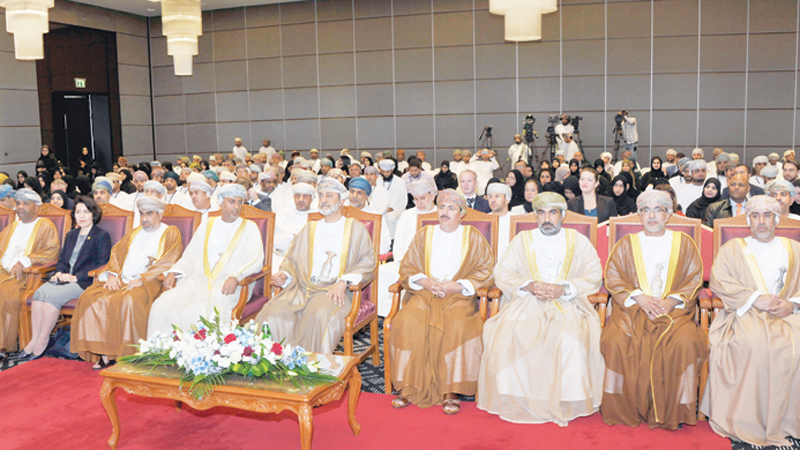

Data availability is a key element in gaining the trust of citizens, especially when the government is the source of such data. This was revealed at the opening of the National Open Data Symposium on Monday.
The three-day National Open Data Symposium, organised by the National Centre for Statistics and Information (NCSI) in cooperation with Information Technology Authority (ITA), was opened today at Kempinski Al Mouj Hotel under the auspices of His Highness Sayyid Haitham bin Tareq al Said, Minister of Heritage and Culture, in the presence of ministers and professionals.
The symposium aims at creating a platform for dialogue between private and public sectors to expand such data.
The big gap in the technology development and policy-making has been one of the major factors for delay in making use of open data in the health sector in Oman, according to experts. Studies have shown the increasing economic value of open data in our world. The European data market study of May 2017 indicated the possibility of free flow of data will witness economic growth throughout Europe. The data economy in the EU is expected to reach 739 billion euros by 2020, of which 325 billion euros is the direct economic value of open data.
The open data sector is expected to provide 100,000 jobs by 2020, up seven per cent from 2016. Savings in public sector costs due to data openness will be around one per cent.
Dr Khalifa bin Abdullah al Barwani, CEO, National Centre for Statistics and Information (NCSI), said, “Transparency in the presentation of data makes us all feel more comfortable and makes our services better. Data availability is a key element in gaining the trust of citizens, especially when the government is the source of such data.”
“These data, when opened and made available electronically, can be used in an innovative way by the government and individuals to find useful tools to support and develop business, facilitate public services and restructure administrative procedures. The society will support individuals and institutions in making decisions appropriate to circumstances and conditions.” According to McKinsey’s report on open data and its impact on the economy, the estimated economic value of the data was estimated at between three and $5 trillion.
The study analysed seven sectors: education, transportation and customer products electricity, oil and gas and consumer finance. It also shows that the sectors benefiting from the open data are education and transport.
Speaking on the occasion, Arthur Mickoleit, principal research analyst at Gartner’s CIO Research and Advisory group, said that open data provides higher level of transparency, enhances citizen’s confidence, improves public services and helps in developing more effective policies. He highlighted the efforts made by governments to get tangible benefits from these sectors and provide necessary reports on them.
Dr Ahmed bin Salim al Hosni, CEO Takween Technology, made a presentation on the open data in the Sultanate between reality and aspirations. He said that the data created by different public organisations are the main source for the knowledge society and one of the key drivers for commercial and economic growth.
Open data
Availability and Access: The data must be available as a whole and at no more than a reasonable reproduction cost
Re-use and Redistribution: The data must be provided under terms that permit re-use and redistribution
Universal Participation: Everyone must be able to use, re-use and redistribute data
Oman Observer is now on the WhatsApp channel. Click here



